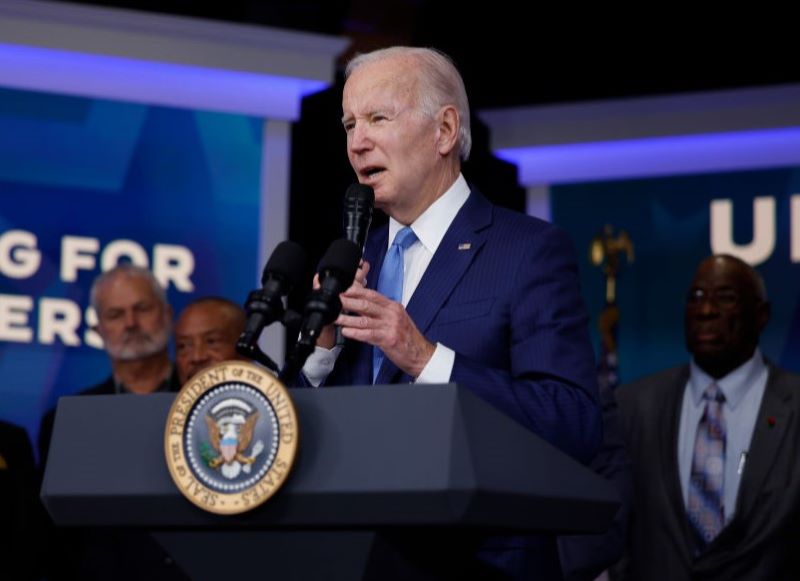In a significant policy shift, President Biden has called on Congress to pass a comprehensive border-overhaul bill, underscoring his willingness to “close off the border” in the event of a migrant surge. As Senate discussions approach their conclusion, the president highlights specific provisions that would authorize emergency powers. These powers would allow the president to redirect migrants in the event of significant influxes, bypassing the traditional asylum claims processing within the U.S.
Provisions in Focus
On late Friday, according to a Wall Street Journal report, Biden released a statement that detailed the features of the proposed legislation, which has not been unveiled yet. The emerging deal outlines a mandate for border-patrol agents to remove migrants if daily encounters reach 5,000 over a week or 8,500 in a single day. The president would have the authority to act if the daily average surpasses 4,000 over a week.
Bipartisan Call for Stronger Border Control
According to The Washington Post, emphasizing the need for bipartisan support, Biden stated, “For those advocating stronger border control, this is the solution. Pass a bipartisan bill, and I will endorse it.” He further expressed his commitment to utilizing the “authority to shut down the border when it becomes overwhelmed” on the day the bill is signed into law.
Shift in Asylum Policy
The president’s shift on asylum seekers is driven by the unprecedented surge in illegal crossings during his administration. This marks a departure from his more lenient 2020 campaign proposal. Faced with disapproval in recent polls regarding his handling of the border situation, Biden appears willing to engage in bipartisan negotiations to address the issue.
Proposed Triggers and Urgency
The proposed trigger of 5,000 daily encounters, including scheduled appointments, would effectively close the border at 3,600 unscheduled encounters, aligning with the U.S. capacity to detain and process migrants. Border Patrol agents reported a record of nearly 250,000 arrests in December, highlighting the urgency of effective border policies.
House Impeachment and Foreign Aid Complications
Tensions rise in the House as Speaker Mike Johnson announces an impending impeachment vote for Homeland Security Secretary Alejandro Mayorkas. House Republicans, seeking changes to border policy as part of foreign aid for Ukraine, add complexity to the political landscape.
Trump’s Concerns and Negotiation Complexities
Former President Donald Trump privately expresses concerns. He worries that supporting a border-security package would give Biden a political win on a key campaign issue. The House Republicans’ preference for a border-security bill resembling H.R. 2 complicates negotiations, while Senate Republicans, led by Sen. James Lankford, focus on curbing asylum claims and narrowing humanitarian parole.
Mayorkas’s Role and Anticipation for Agreement Text
Mayorkas, representing the Biden administration in border talks, remains a central figure in negotiations. The potential release of a text agreement next week adds anticipation to the ongoing discussions.
Impeachment Proceedings and DHS Response
In the midst of these developments, the House’s impeachment proceedings against Mayorkas underscore the deepening political divide over border policies. The Department of Homeland Security states that it operates within the limitations of a flawed immigration system. It urges Congress to address the underlying issues. If impeachment proceedings succeed in the House. They would necessitate a two-thirds supermajority in the Senate for conviction and removal from office.

